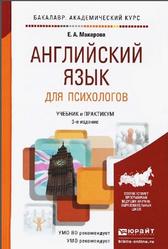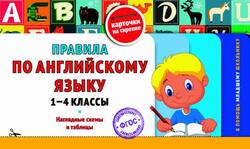The Advances in Game-Based Learning (AGBL) Book Series aims to cover all aspects of serious games applied to any area of education. The definition and concept of education has begun to morph significantly in the past decades and game-based learning has become a popular way to encourage more active learning in a creative and alternative manner for students in K-12 classrooms, higher education, and adult education. AGBL presents titles that address many applications, theories, and principles surrounding this growing area of educational theory and practice.
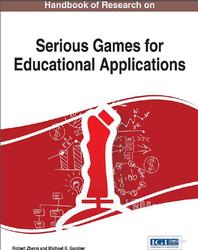
WHAT IS METACOGNTION?
An important starting point is to define metacognition. Metacognition is “knowledge of one’s knowledge, processes, and cognitive and affective states; and the ability to consciously and deliberately monitor and regulate one’s knowledge, processes, and cognitive and affective states” (Hacker, 1998, p. 3). This definition identifies both declarative and procedural components of metacognition. Metacognitive declarative knowledge consists of a person’s knowledge or beliefs about: (a) one’s cognitive and affective states and the states of others; (b) a task, its demands, and how those demands can be met under varying conditions; and (c) strategies for accomplishing the task and how and when to use them (Flavell, 1979).
Metacognitive procedural knowledge consists of both monitoring and control components. Metacognitive monitoring refers to processes that are “directed at the acquisition of information about the person’s thinking processes” (Kluwe, 1982, p. 212). These processes involve a person’s ability (a) to identify the task on which one is currently working, (b) to check on current progress of that work, (c) to evaluate that progress, and (d) to predict whether the expected outcome will be attained (Flavell, 1979). Metacognitive control refers to processes that are “directed at the regulation of the course of one’s own thinking” (Kluwe, 1982, p. 212). These processes involve a person’s ability (a) to allocate his or her resources to the current task, (b) to determine and direct the steps to complete the task, (c) to set the intensity or (d) the speed of the work task (Flavell, 1979). Both declarative and procedural components of metacognition are necessary for students to become “self-regulatory organisms who are capable of assessing themselves and others and directing their behavior toward specified goals” (Hacker. 1998, p. 10), that is, to become agents of their own thinking.
Contents.
Preface.
Acknowledgment.
Section 1 Educational Games: Theoretical Perspectives.
Section 2 Educational Games: Cognitive and Psychological Perspectives.
Section 3 Educational Games: Instructional Design Perspectives.
Section 4 Educational Games: Teaching and Learning Perspectives.
Compilation of References.
About the Contributors.
Index.
Бесплатно скачать электронную книгу в удобном формате, смотреть и читать:
Скачать книгу Handbook of Research on Serious Games for Educational Applications, Zheng R., Gardner M.K., 2017 - fileskachat.com, быстрое и бесплатное скачивание.
Скачать pdf
Ниже можно купить эту книгу, если она есть в продаже, и похожие книги по лучшей цене со скидкой с доставкой по всей России.Купить книги
Скачать - pdf - Яндекс.Диск.
Дата публикации:
Теги: учебник по английскому языку :: английский язык :: Zheng :: Gardner
Смотрите также учебники, книги и учебные материалы:
Следующие учебники и книги:
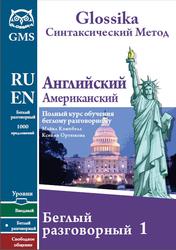 Glossika, Синтаксический Метод, Английский, Американский, Беглый разговорный 1, Кэмпбелл М., Ортюкова К., 2015 — При обучении по программе Глоссика основное внимание уделяется развитию навыков разговорной речи и восприятия речи на слух. Материалы Глоссика уместно … Книги по английскому языку
Glossika, Синтаксический Метод, Английский, Американский, Беглый разговорный 1, Кэмпбелл М., Ортюкова К., 2015 — При обучении по программе Глоссика основное внимание уделяется развитию навыков разговорной речи и восприятия речи на слух. Материалы Глоссика уместно … Книги по английскому языку Thoughts to Build On, Kopmeyer M.R. — This is a book of THOUGHTS to build your LIFE on. It is a unique book ... 80 entirely different … Книги по английскому языку
Thoughts to Build On, Kopmeyer M.R. — This is a book of THOUGHTS to build your LIFE on. It is a unique book ... 80 entirely different … Книги по английскому языку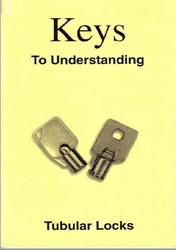 Keys to Understanding Tubular Locks, 1974 — Фрагмент из книги: The tubular lock, in the form of the regular 7 pin version, has been around for many … Книги по английскому языку
Keys to Understanding Tubular Locks, 1974 — Фрагмент из книги: The tubular lock, in the form of the regular 7 pin version, has been around for many … Книги по английскому языку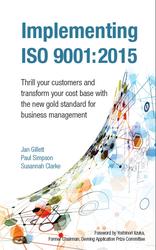 Implementing ISO 9001:2015, Gillett J., Simpson P., Clarke S., 2015 — The purpose of our book is to help readers understand the key aspects of the revised ISO 9001:2015 standard, and … Книги по английскому языку
Implementing ISO 9001:2015, Gillett J., Simpson P., Clarke S., 2015 — The purpose of our book is to help readers understand the key aspects of the revised ISO 9001:2015 standard, and … Книги по английскому языку
Предыдущие статьи:
 London known and unknown, Лондон знакомый и незнакомый, Проценко Ю.М., 2008 — Пособие предназначено для совершенствования навыков чтения на английском языке. В него вошли тексты, составленные на основе оригинальных англоязычных первоисточников. Тексты … Книги по английскому языку
London known and unknown, Лондон знакомый и незнакомый, Проценко Ю.М., 2008 — Пособие предназначено для совершенствования навыков чтения на английском языке. В него вошли тексты, составленные на основе оригинальных англоязычных первоисточников. Тексты … Книги по английскому языку How It Works Annual, Volume 9, 2018 — Welcome to the ninth volume of the How It Works Annual. where your burntngquestlonsabout how the world ticks finally get … Книги по английскому языку
How It Works Annual, Volume 9, 2018 — Welcome to the ninth volume of the How It Works Annual. where your burntngquestlonsabout how the world ticks finally get … Книги по английскому языку A Way to Debating, Пособие по разговорному английскому, Памухина Л.Г., Шелкова T.Г., 1979 — Пособие содержит статьи социального характера из американской прессы. Статьи снабжены комментарием и системой упражнений, направленных на развитие разговорных навыков. Предназначено … Книги по английскому языку
A Way to Debating, Пособие по разговорному английскому, Памухина Л.Г., Шелкова T.Г., 1979 — Пособие содержит статьи социального характера из американской прессы. Статьи снабжены комментарием и системой упражнений, направленных на развитие разговорных навыков. Предназначено … Книги по английскому языку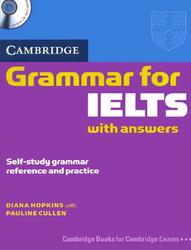 Grammar for IELTS with answers, Hopkins D., Cullen P., 2008 — This book is for anyone preparing for IELTS. Although the IELTS test does not include a specific grammar module, it … Книги по английскому языку
Grammar for IELTS with answers, Hopkins D., Cullen P., 2008 — This book is for anyone preparing for IELTS. Although the IELTS test does not include a specific grammar module, it … Книги по английскому языку

